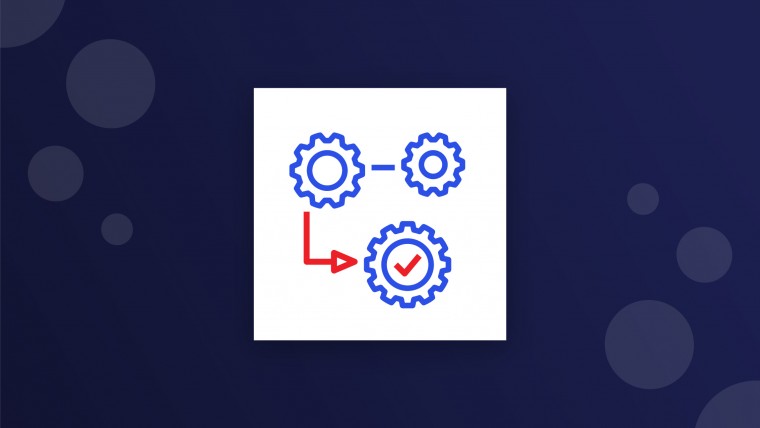In the world of business consulting, there are three terms that while closely linked should not be presumed to refer to the same processes and managerial functions. Strategy, Operation, and Implementation are key components to creating a business that is not only successful in the short run but also in the long run. Having a visionary strategy is not enough if it is not in turn linked to excellent operations that allow for its proper implementation.
1. Strategy
Strategy formulation is a top management function that the top-level, or C-level, executives of a business are responsible for. Those C-level executives will be able to formulate a business strategy with the guidance of strategy consultants. Strategy consultants will offer different analytics and research methodologies that will be used as guiding principles through with important decisions regarding the formulation and implementation of a strategy will be based on.
Strategy building is a crucial stage in planning the long-term strategic endeavors of the company through answering basic sets of questions. These can include:
-
What should our long-term vision be?
-
Should we retain the same portfolio of businesses?
-
Should we enter a specific market?
During this stage of strategy formulation, a detailed report outlining price, volume, market shares, and other important analytical data will be generated by the strategy consultant. This report will enable executives to make educated decisions regarding the viability of their business strategies.
2. Operations
Operations consulting is similar to strategy consulting in many ways, and it shouldn’t be confused with implementation work which is often a misconception people have regarding this type of consulting work. An operations consultant will in many ways follow the principles and use similar tools regarding problem-solving, analytics, and research approaches like those used by strategy consultants. Questions that they will try to tackle during their consulting sessions include:
-
How do we increase productivity and maximize the profit of a particular division/plant /department?
-
How can we improve key processes?
-
How do we reduce costs in this division/plant?
-
How do we reduce bottlenecks?
During this stage, detailed reports are delivered by the operations consultant outlining metrics, KPI’s, benchmarks, and suggesting improvements. Business operations and strategy are often based on this report as it contains essential information regarding the areas of the business that they would improve on to maximize their business potential.
3. Implementation
Strategy execution consulting is unlike strategy and operations consulting. Where the previous two stages concerned themselves with the creation of long-term plans and finding potential opportunities to scale up the business, strategy implementation deals with converting those plans into actions.
Where strategy and operations formulation dealt with asking questions, implementation is all about answering them.
-
How to execute the developed strategies?
Through the creation of steps for the efficient allocation of resources in each department and aspect of the business including HR, funding, technology, R&D, etc.
-
What policies and procedures are established for execution?
With the help of a consultant, new organizational structures can be created in micro detail. Previous processes and policies can be refined and redesigned to work for the company’s goals.
-
What could a successful implementation look like?
Depending on the industry examples, implementation success can include:
- Setting up an accounting system and adjusting SAP
- Determining the go-live date,
- Trial running a new facility
- Releasing a beta version of the software etc.
-
How to train and align employees with strategy?
While strategy and operations optimization are the responsibility of C-level executives, implementation strategies relate to aligning employees with the new strategic goals. This can often include transferring employees and making adjustments to their employment contracts, managing labor unions, project management, arranging necessary training, and taking any other procedural steps necessary depending on the industry and strategic plan that was formulated.
Linking Strategy and operations to execution for competitive advantage
The formulation and implementation of strategy and operations are essential for the sustainable growth of a company. This is why strategy, operation, and implementation consultants will ensure that steps are taken in the following areas to give businesses a competitive advantage and help them grow:
- Mobilize change through executive leadership
- Translate strategy into operational terms
- Align the organization with the formulated strategy
- Motivate to make strategy everyone’s job
- Govern to make strategy execution a continual process
Where do SME’s fail?
SME’s generally fail at implementing strategy because they lack a management system, on-hands experience, and expertise to integrate and align strategy, operations, and implementation. In many SME’s there appears to be a gap between the formulation of high-level strategic plans and the implementation and execution of those plans by departments, teams, and employees. In growing businesses employing people who can inspire and align team members with the company’s goals is an essential component for success.
Conclusion
Finding the right personnel for each role that you need to fill has become increasingly easier as talent can be found through LinkedIn, job posts, and networking events. Hiring a professional consultant that can offer their expert help for the duration of the project, and also help to train existing staff is also a great way of getting valuable guidance. One way is to hire a consulting firm such as MicroAgility, to provide you with professional consultants that can work with your team for better results. Or if you’d like to quickly find resources and relevant talent, you can explore consulting platforms like iAgility, where they have vetted consultants on demand.
Feel free to explore your options to identify the best route for you. Good luck with the formulation and implementation of your strategy, if there’s anything our team can do to help, let us know!
If you want to learn more about strategy execution, explore our other blog articles here…







